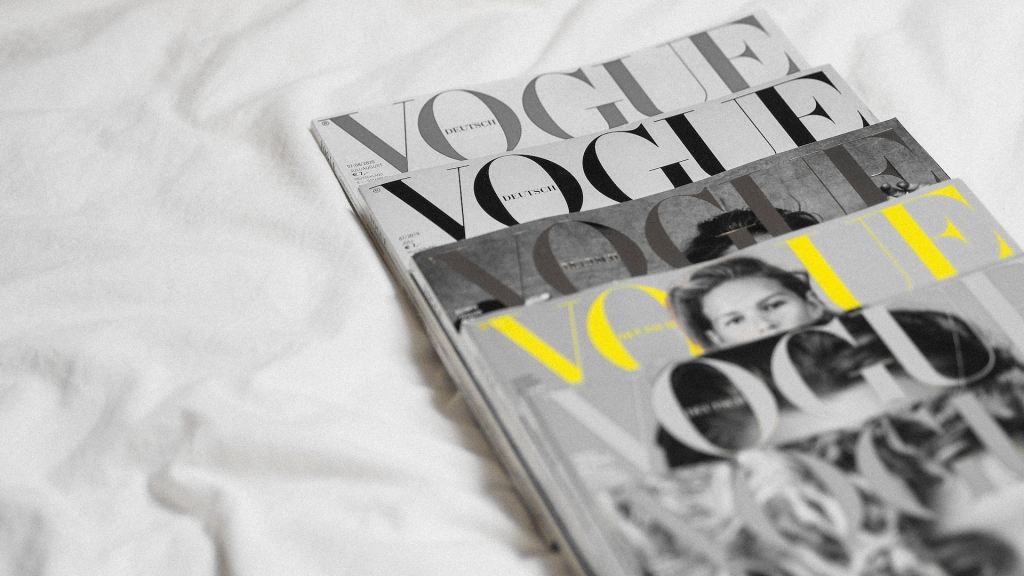Trademark disputes can be complex, especially when they span across multiple jurisdictions. In the European Union (EU), resolving such disputes involves a lot of efforts and time. A recent EU Court decision sheds light on cases involving multiple defendants domiciled in different EU member states.
The case C‑832/21 is between Beverage City & Lifestyle GmbH, MJ, Beverage City Polska Sp. z o.o., FE and Advance Magazine Publishers Inc, has the following background:
Advance Magazine Publishers, established in New York (United States), being the publisher of the popular magazine Vogue, is the proprietor of a number of EU trademarks containing the word element ‘Vogue’, which it claims are trademarks with a reputation.
Beverage City Polska is a company incorporated under Polish law and established in Kraków (Poland). It manufactures, advertises, and distributes an energy drink under the name ‘Diamant Vogue’. Its managing director, FE, is also domiciled in Kraków.
Beverage City & Lifestyle is a company incorporated under German law and established in Schorfheide in Brandenburg (Germany). Its managing director, MJ, is domiciled in Niederkassel in North Rhine-Westphalia (Germany). That company was connected with Beverage City Polska through an exclusive distribution agreement for Germany under which it sourced the energy drink referred to in the preceding paragraph from Beverage City Polska. Despite the similarity in name, the two companies do not belong to the same group.
Taking the view that it had been the victim of acts of infringement of its trademarks, Advance Magazine Publishers brought an action against those companies and their respective managing directors before the EU trademark court with jurisdiction for North Rhine-Westphalia, namely the Regional Court, Düsseldorf, Germany, for injunctive relief throughout the European Union and for information, the disclosure of accounts and a declaration of liability for damages. Those supplementary claims were later limited to acts in Germany.
The Regional Court, Düsseldor) upheld the action brought by Advance Magazine Publishers, basing its international jurisdiction in so far as concerns Beverage City Polska and FE on Article 8(1) of Regulation No 1215/2012. It found that the principles established by the Court of Justice in its judgment of 27 September 2017, Nintendo (C‑24/16 and C‑25/16, EU:C:2017:724), were applicable to the case in the main proceedings.
Beverage City Polska and FE brought an appeal against the decision of the Regional Court, Düsseldorf before the Higher Regional Court, Düsseldorf, Germany.
They argue that the German courts do not have international jurisdiction to hear and determine the action brought against them, stating that they had operated and delivered goods to their customers exclusively in Poland. In addition, the judgment of 27 September 2017, Nintendo (C‑24/16 and C‑25/16, EU:C:2017:724), is not, it is argued, transposable to their situation, since there is no relevant connection between them, on the one hand, and Beverage City & Lifestyle and MJ, on the other.
The referring court considers that the international jurisdiction of the German courts to hear and determine the action against Beverage City Polska and FE is subject to the condition that, in accordance with Article 8(1) of Regulation No 1215/2012, that claim is so closely connected with that brought against MJ, described as the ‘anchor defendant’, that it is expedient to hear and determine them together to avoid the risk of irreconcilable judgments resulting from separate proceedings.
In the present case, in contrast to the case which gave rise to the judgment of 27 September 2017, Nintendo (C‑24/16 and C‑25/16, EU:C:2017:724), the supply relationship between Beverage City Polska and Beverage City & Lifestyle does not concern the anchor defendant against whom proceedings were brought only in his capacity as representative of the latter company. Furthermore, those two companies do not belong to the same group of companies and operate autonomously and independently of each other.
The referring court is uncertain, however, whether the existence of an exclusive distribution agreement between Beverage City Polska and Beverage City & Lifestyle is sufficient to satisfy the condition laid down in Article 8(1) of Regulation No 1215/2012, it being noted that the case in the main proceedings concerns the same trademarks and the same goods.
In those circumstances, the Higher Regional Court, Düsseldorf decided to stay the proceedings and to refer the following question to the Court of Justice for a preliminary ruling:
‘Are claims “so closely connected” that it is expedient to hear and determine them together to prevent irreconcilable judgments, within the meaning of Article 8(1) of [Regulation No 1215/2012], where, in infringement proceedings for infringement of an EU trade mark, the connection consists in the fact that the defendant domiciled in a Member State (here, [the Republic of] Poland) supplied the goods which infringe an EU trade mark to a defendant domiciled in another Member State (here, [the Federal Republic of] Germany) whose legal representative, against whom infringement proceedings have also been brought, is the anchor defendant, if the parties are connected to each other only through the mere supply relationship beyond which there is no legal or factual connection?’
The court decision:
Article 8(1) of Regulation (EU) No 1215/2012 of the European Parliament and of the Council of 12 December 2012 on jurisdiction and the recognition and enforcement of judgments in civil and commercial matters must be interpreted as meaning that:
a number of defendants, domiciled in different Member States, may be sued in the courts for the place where one of them is domiciled before which, in the context of an infringement action, claims have been brought against all of those defendants by the proprietor of an EU trade mark where they are each accused of having committed a materially identical infringement of that trade mark and they are connected by an exclusive distribution agreement.
- SEO Powered Content & PR Distribution. Get Amplified Today.
- PlatoData.Network Vertical Generative Ai. Empower Yourself. Access Here.
- PlatoAiStream. Web3 Intelligence. Knowledge Amplified. Access Here.
- PlatoESG. Carbon, CleanTech, Energy, Environment, Solar, Waste Management. Access Here.
- PlatoHealth. Biotech and Clinical Trials Intelligence. Access Here.
- Source: https://intellectualpropertyplanet.wordpress.com/2023/09/25/the-eu-court-rules-on-jurisdiction-in-eu-trademark-infringement-cases/
- :has
- :is
- :not
- :where
- 1
- 2012
- 2017
- a
- accordance
- Accounts
- accused
- across
- Action
- acts
- addition
- advance
- against
- Agreement
- All
- also
- an
- Anchor
- and
- Another
- appeal
- applicable
- ARE
- argue
- argued
- AS
- autonomously
- avoid
- background
- BE
- been
- before
- being
- between
- BEVERAGE
- Beyond
- brought
- by
- CAN
- Capacity
- case
- cases
- circumstances
- City
- civil
- claim
- claims
- closely
- commercial
- committed
- Companies
- company
- complex
- Concern
- Concerns
- condition
- connected
- connection
- considers
- consists
- context
- contrast
- Council
- Court
- Courts
- Customers
- December
- decided
- decision
- defendants
- delivered
- described
- Despite
- Determine
- different
- Director
- Directors
- disclosure
- Display
- disputes
- distribution
- do
- does
- domiciled
- down
- Drink
- each
- efforts
- element
- energy
- enforcement
- especially
- established
- Ether (ETH)
- EU
- Europa
- European
- European Parliament
- european union
- European Union (EU)
- Exclusive
- exclusively
- fact
- Factual
- far
- Fe
- Federal
- Files
- following
- For
- found
- from
- Furthermore
- gave
- German
- Germany
- GmBH
- goods
- Group
- had
- hand
- Have
- having
- hear
- here
- higher
- his
- However
- HTTPS
- identical
- if
- in
- Incorporated
- independently
- information
- infringement
- International
- involves
- involving
- IT
- ITS
- jpg
- judgments
- jurisdiction
- jurisdictions
- Justice
- later
- Law
- Legal
- liability
- lifestyle
- light
- Limited
- Lot
- magazine
- Main
- managing
- Managing Director
- mark
- materially
- max-width
- May..
- meaning
- member
- mere
- MJ
- multiple
- name
- namely
- New
- New York
- no
- None
- North
- noted
- number
- of
- on
- ONE
- only
- operate
- operated
- or
- Other
- parliament
- parties
- Place
- plato
- Plato Data Intelligence
- PlatoData
- Poland
- Polish
- Popular
- present
- prevent
- principles
- Proceedings
- publisher
- publishers
- question
- recent
- recognition
- refer
- referred
- regional
- Regulation
- relationship
- relevant
- relief
- representative
- Republic
- reputation
- resolving
- respective
- resulting
- Rise
- Risk
- rules
- ruling
- same
- separate
- September
- since
- situation
- So
- so Far
- sourced
- span
- State
- States
- stating
- stay
- subject
- such
- sued
- sufficient
- supplied
- supply
- that
- The
- their
- Them
- There.
- they
- those
- Through
- throughout
- time
- to
- together
- trade
- trademark
- trademarks
- two
- Uncertain
- under
- union
- United
- United States
- Victim
- View
- vogue
- was
- were
- when
- whether
- which
- whose
- with
- within
- Word
- WordPress
- york
- zephyrnet








